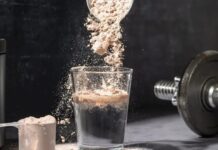The debate of coffee and tea has been a long one, with both sides often debating on how one is better than the other. But what if both have their benefits and shortcomings and it can actually depend on when a person is consuming these beverages?
The Indian Council of Medical Research (ICMR) has recently developed new dietary guidelines for the Indian population highlighting when people should avoid drinking tea or coffee.
What Has The ICMR Said?
The Indian Council of Medical Research (ICMR) has come out with 17 dietary guidelines for Indians to help them develop a more balanced and diverse diet that would lead to a healthy lifestyle.
In partnership with its research wing the National Institute of Nutrition (NIN), the ICMR in one of its guidelines has explained how and when Indians should be drinking beverages like coffee and tea.
As per the ICMR guidelines, “Tea and coffee contain caffeine, which stimulates the central nervous system and induces physiological dependence”.
It further explained how much caffeine a 150 ml cup of coffee or tea would have: brewed coffee:
- 80-120mg of caffeine,
- instant coffee: 50-65mg,
- tea: 30-65mg of caffeine
The tolerable limit for caffeine is set at 300mg/day and it is advised that one should consume these drinks in moderation to not exceed it. The guidelines also stated that people should avoid having coffee or tea with meals or it should be “avoided for one hour before and after meals” since “Tannin is also present in tea and coffee and is known to interfere with iron absorption”.
Speaking on tea and how to drink it the ICMR has said “Besides caffeine, tea (green or black) contains theobromine and theophylline, which are known to relax arteries and thereby promote blood circulation. They also contain flavonoids and other antioxidant polyphenols, which may reduce the risk of coronary heart disease and stomach cancer. These benefits can be best obtained if milk is not added to tea and if it is taken in moderation”.
The guidelines also commented on how excessive consumption of coffee can lead to increased risk of blood pressure and heartbeat abnormalities. And that “an association between coffee consumption and elevated levels of total and LDL cholesterol (‘bad’ cholesterol), triglycerides and heart disease has been demonstrated. Similarly, excessive consumption of tea should also be avoided due to its caffeine content”.
Read More: Why Checking The Expiry Date On Your Food Items Is Useless
Dr Vikas Jindal, consultant, dept of gastroenterology, CK Birla Hospital, agreeing with ICMR said that not just iron absorption but drinking beverages with meals could also dilute stomach acid important for digestion and “This could limit food breakdown and nutritional absorption and would ultimately have an impact on overall digestion and nutrient absorption.”
Not The First Time Being Suggested
ICMR is not the first to make this suggestion, with dietitians, nutritionists, doctors, and other experts having been saying so for a few years now.
Nutritionist Nmami Agarwal in an Instagram post in January this year brought up this point of avoiding coffee or tea with meals stating “Sipping coffee or tea with meals can potentially hinder nutrient absorption, particularly iron”.
She explained that compounds like polyphenols and tannins present in these beverages can cling to iron and make it difficult for the body to absorb it properly. She wrote, “Both beverages contain compounds like polyphenols and tannins that can bind to iron, forming complexes that are poorly absorbed by the body.”
Further explained “This interference may affect the absorption of non-heme iron, which comes from plant-based sources and is already less efficiently absorbed than heme iron from animal products. Consuming these drinks between meals is recommended to minimize their impact on nutrient absorption.”
Jennifer Bollig, a registered dietitian at Banner Estrella Medical Center in Arizona, US, also commented on this in a 2022 report.
She said “Research shows that about half of the population is born with the ‘slow caffeine metabolism’ gene, which means you may feel jittery and wired for several hours after caffeine intake,” further adding how for such people drinking coffee could potentially increase risk for digestive problems, high blood pressure, lethargy, insomnia and more.
Bollig also brought up the presence of tannins in tea that can disrupt the iron absorption in our bodies and also that prepackaged tea bags due to oxidation could lose some of the nutrient benefits that would be present in loose tea leaves.
Shilpa Singh a Nutritionist at Cloudnine Hospital, has also written, “The best time to consume these beverages is either early in the morning, mid-morning or evening and not with the meals. Keeping a gap of at least 1 hour before or after meals is recommended for better absorption of nutrients”.
Tea and coffee both have their health benefits, with the former helping in being good for one’s blood pressure, cholesterol, stress levels, productivity and mental health, coffee on the other hand helps in lowering cancer and diabetes risk, elevating mood and giving energy boosts. The only thing to consider is when to have these beverages in a day.
Image Credits: Google Images
Feature image designed by Saudamini Seth
Sources: The Indian Express, NDTV, The Washington Post
Find the blogger: @chirali_08
This post is tagged under: tea coffee, tea coffee with meals, tea coffee side effects, tea, coffee, tea coffee meals, icmr, health, beverages, coffee side effects, tea side effects, iron, iron deficiency
Disclaimer: We do not hold any right, or copyright over any of the images used, these have been taken from Google. In case of credits or removal, the owner may kindly mail us.
Other Recommendations:
Indian Origin Man Shares Hack, Gets Labelled ‘Food Bandit,’ Racial Bullying Over Viral Video






































